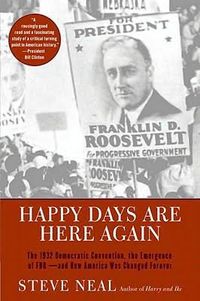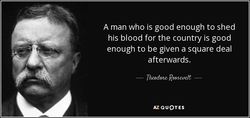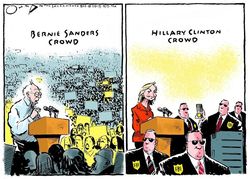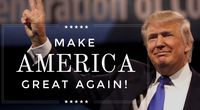 I write from passion, often indistinguishable from anger,
I write from passion, often indistinguishable from anger,
People, in general, are far more likely to get active against injustice than active for justice. When things are good they are quiet, or they find something else to get angry about.
The 2000 election was decided, in large part, on “wedge issues” like guns and abortion, where minorities of the public could be made angry enough to vote. Those who had seen gains from the Clinton-era economy were less motivated. The result was close enough for a Republican court to steal, and we’ve been paying for that ever since.
Every major political change is motivated by anger, even if it is clothed in positive garments. Franklin Roosevelt’s theme song was Happy Days are Here Again, but the days were anything but happy, with unemployment at nearly 33% and hunger stalking the land. Barack Obama ran on change, on “Hope,” but what elected him was the fact that the economy was growing at a rate of -9% during that campaign.
So in every important election the battle is joined to tap into anger. The media is always surprised by this, and Democrats often suck at it, but anger is what drives turnout and turnout is what wins elections.
Every generational cycle has echoes of those that came before. We like to talk of Hillary Clinton as the “new Nixon,” we compare ISIS to Hitler, and we see VanillaISIS or police brutality in terms of the KKK. But I have long believed that the era ours is most like is that of the 1890s. It has the same sorts of problems. Rapid change, huge disparities of wealth and power, and a system that seems to be rigged in favor of the “big boys.”

The Populist Bryan of today is, believe it or not, the one and only Sarah Palin. Palin tapped into all these inchoate angers and fears, over foreigners, over the culture, and over America’s sinking reputation, in 2008 and has never let up. The GOP is her party. Whether Donald Trump or Ted Cruz is the nominee, or even if a “regular” Republican like Marco Rubio breaks through, she is driving the train. It is her ideas that would govern in that case.

Business is often misunderstood as being an impediment to progress, and some businesses are. But growth comes from change, from progress, and those businesses that aren’t seeking monopoly rents usually support progressive causes. Large businesses are generally far more liberal than small ones.
This is the movement, led by technology, which Barack Obama signed on with in 2008. He has been the Theodore Roosevelt of this time, seeming to anger business interests while actually moving in concert with them. Just as Wall Street pantomimed its opposition to TR, so technology has often pretended to be opposed to this Administration, even while lining up beside him.

History does not repeat, but it often rhymes. The arguments of Clinton and Sanders carry echoes of Vietnam, as though Taft and Bryan were re-fighting the Civil War. The only danger is that the two sides won’t be able to unite once the struggle is decided.
What might tip the balance? Again, I think the answer lies in anger. If someone on the Presidential campaign stump would get really angry about Flint’s water, about the enormous number of lead pipes that still exist, about the falling bridges and collapsing roadways around the country, they could then call for a National Infrastructure Bank that would get demand back up and get the economy growing again.

I have been wrong before. The collapse of global stock markets last month took me by surprise. Deflation is a serious, global threat, driven by what technology has done just in the last 8 years – compressing markets – and what it threatens to do in the future – compressing health care delivery chains, energy creation and transportation systems, which is where millions of workers have sought shelter as bureaucrats, drillers or drivers.

Still, as they say on the sports beat, “that’s why they play the games.” The future is inherently unknowable. Republicans could triumph in 2016 and get people really angry in 2017, angry enough to lead to violence.
We’ll see.










